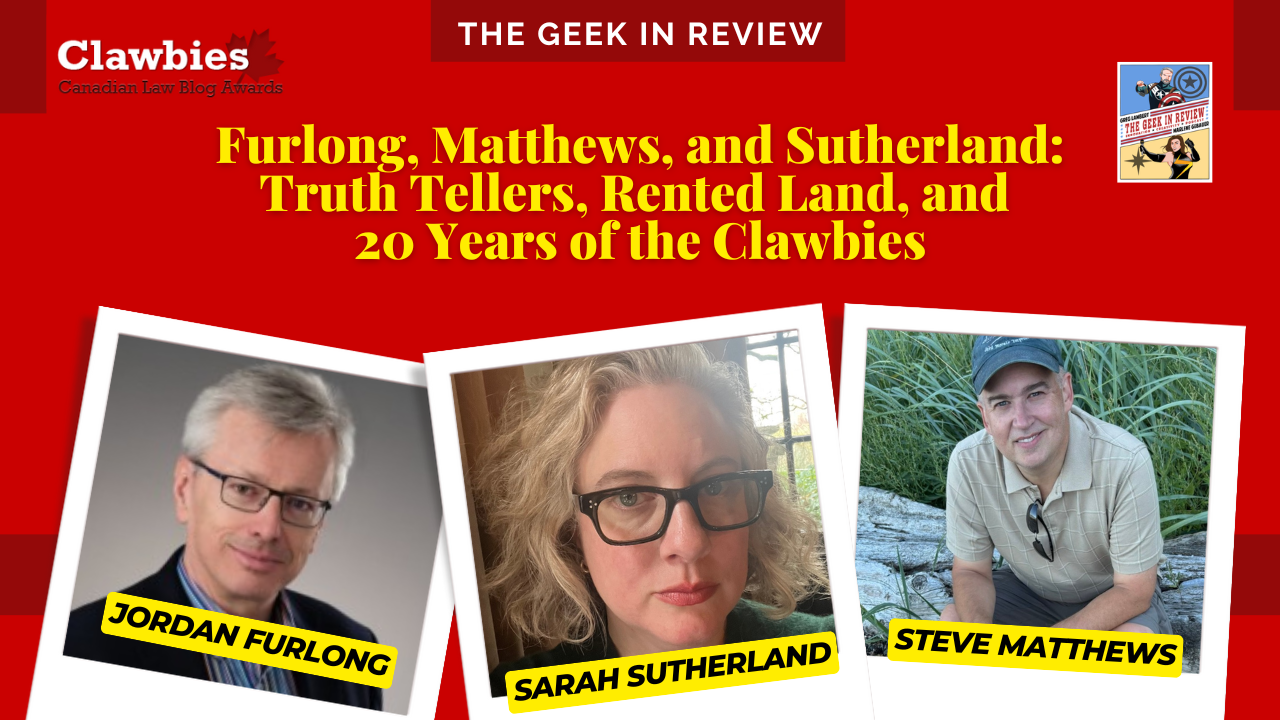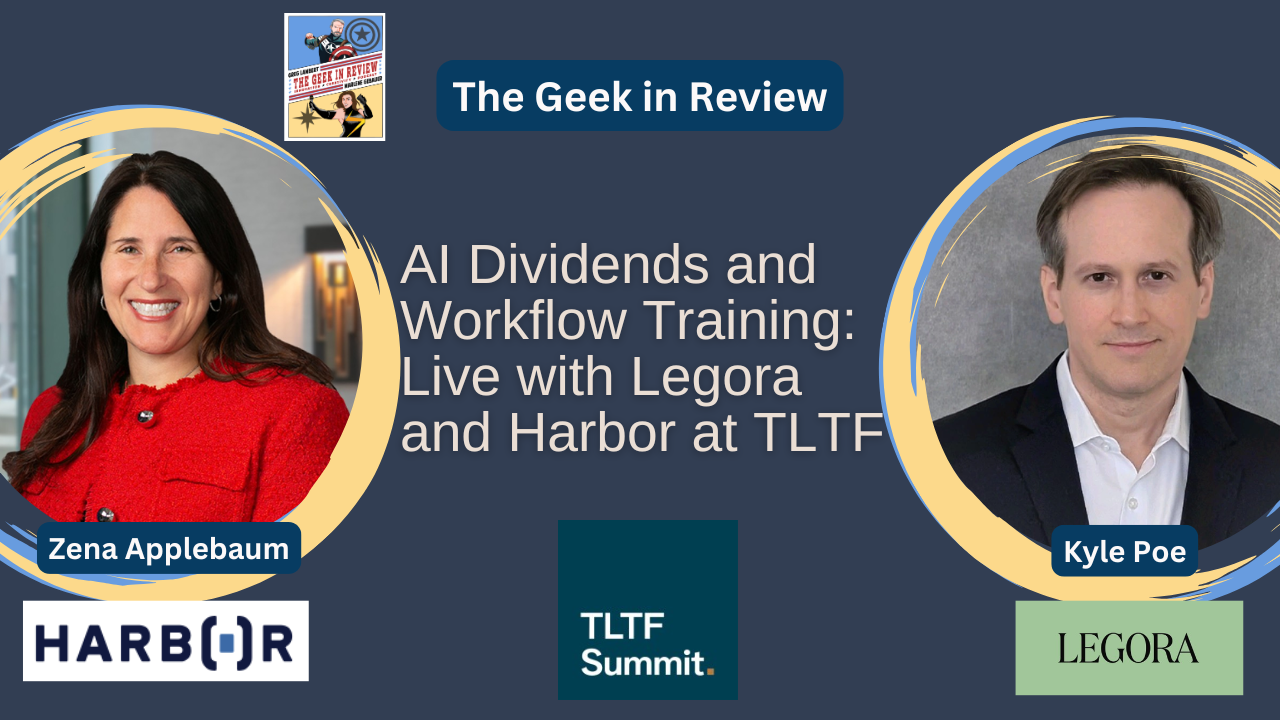This week on The Geek in Review, we bring together a trio of Canadian legends from the legal web to celebrate the 20th anniversary of the Canadian Law Blog Awards, better known as the Clawbies. Steve Matthews of STEM Legal and Slaw.ca, Sarah Sutherland of Parallax Information Consulting and former president and CEO of CanLII, and legal market analyst and Substack author, Jordan Furlong join us to talk about how legal publishing has changed over two decades and where it heads next. Along the way, we share a little host pride, since 3 Geeks and a Law Blog picked up a Friend of the North Clawbies back in 2011. Canada remembers, even if the trophy cabinet looks a little full on our side of the border.
We start with Steve’s long-running mantra: do not build your professional home on rented land. For years he pushed lawyers toward blogs and owned domains, warning that social platforms could change rules overnight or simply fall apart. That warning came into sharp focus as Twitter morphed into X and law Twitter scattered toward BlueSky, Mastodon, Threads and other venues. Jordan talks about deleting years of tweets rather than leaving a personal archive tied to a platform he no longer trusts, then describes how his own publishing shifted from long-form blogging at Law21 to a Substack newsletter model that feels more like a curated living room of engaged readers than a noisy town square.
From there, Sarah introduces one of our favorite phrases in the episode, “law’s eternal September,” where a constant wave of new technology, including generative AI, keeps the justice system and the information world in permanent transition. We explore how legal publishers now balance automation and human judgment, with AI helping on classification, annotations, and summaries, while editors and authors still play a central role in verification and context. We share our own experience with AI-assisted prep for the show, and how a human guest had to correct outdated biographical details. That leads to a broader point about the need for trusted, non-AI sources that give researchers, lawyers, and readers a place to check facts and assumptions before sharing work with clients or the public.
Jordan, Steve, and Sarah then turn to the Clawbies themselves and the theme they have set for the upcoming awards year: “the year of the truth teller.” In an era of disinformation, sloppy AI content, and reputation-damaging LinkedIn posts, lawyers and legal professionals gain real value by standing out as accurate, consistent voices who care about community as much as client work. Steve explains how the Clawbies now cover blogs, newsletters, podcasts, Tik Toks, and other formats, while still focusing on authenticity and public legal education. We also learn about the “humble Canadian rule,” where nominators highlight one to three other voices, while the organizers quietly take a closer look at the nominator’s own work in the background. The mission stays the same: surface new voices, new formats, and generous contributors who strengthen public conversation.
We close with a look ahead. Steve predicts more structured, list-driven use of newer platforms like BlueSky for targeted conversations, while Sarah points to growing centralization as giants such as Thomson Reuters, LexisNexis, and Clio blend publishing and practice software. Jordan sees a fractured present, with silos and distrust, but also anticipates a future pull toward recombination, where readers gravitate to sources and bundles that feel trustworthy again. Through it all, the three guests encourage anyone interested in writing, podcasting, or other media to choose a format that fits personal strengths, commit to thoughtful output, and focus on truth-telling over pure marketing.
For listeners who want to follow along, Sarah is active on LinkedIn and BlueSky, Jordan anchors his work on Substack, and Steve runs both Slaw.ca and the Clawbies at clawbies.ca, where nominations open December 1 and winners appear on December 31.
Listen on mobile platforms: Apple Podcasts | Spotify | YouTube
[Special Thanks to Legal Technology Hub for their sponsoring this episode.]
Email: geekinreviewpodcast@gmail.com
Music: Jerry David DeCicca









